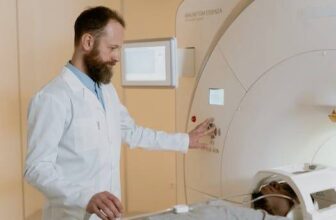Addressing Therapeutic Inertia in Diabetes Management with Electronic Health Records
How Electronic Health Records Can Help Improve Diabetes Management
Electronic health records (EHRs) are digital versions of a patient’s medical history, which can be accessed and shared by healthcare providers. EHRs can be a powerful tool in improving diabetes management, as they provide a comprehensive view of a patient’s health and can be used to track and monitor diabetes-related data.
EHRs can help healthcare providers better understand a patient’s diabetes history and current condition. By having access to a patient’s complete medical history, healthcare providers can more accurately assess the patient’s risk factors and develop a personalized treatment plan. Additionally, EHRs can be used to track and monitor a patient’s diabetes-related data, such as blood sugar levels, medication adherence, and lifestyle changes. This data can be used to identify trends and patterns, which can help healthcare providers adjust treatment plans as needed.
EHRs can also help improve communication between healthcare providers and patients. By having access to a patient’s medical history, healthcare providers can more easily coordinate care and provide timely follow-up. Additionally, EHRs can be used to send reminders to patients about upcoming appointments or medication refills. This can help ensure that patients are staying on track with their diabetes management plan.
Finally, EHRs can help reduce medical errors and improve patient safety. By having access to a patient’s complete medical history, healthcare providers can more easily identify potential drug interactions or other safety issues. Additionally, EHRs can be used to track and monitor a patient’s diabetes-related data, which can help ensure that the patient is receiving the most appropriate care.
In summary, EHRs can be a powerful tool in improving diabetes management. By providing a comprehensive view of a patient’s health, EHRs can help healthcare providers better understand a patient’s diabetes history and current condition. Additionally, EHRs can be used to track and monitor a patient’s diabetes-related data, which can help identify trends and patterns. Finally, EHRs can help improve communication between healthcare providers and patients, as well as reduce medical errors and improve patient safety.
Exploring the Benefits of Electronic Health Records for Diabetes Patients
Electronic health records (EHRs) are becoming increasingly popular in the healthcare industry, and for good reason. EHRs offer a number of benefits for diabetes patients, including improved accuracy, better communication, and increased access to care.
Accuracy is one of the primary benefits of EHRs for diabetes patients. By entering data into an EHR, healthcare providers can ensure that all of a patient’s information is accurate and up-to-date. This is especially important for diabetes patients, as their condition requires frequent monitoring and adjustments to medication and lifestyle. With an EHR, healthcare providers can quickly and easily access a patient’s medical history, lab results, and other important information.
EHRs also facilitate better communication between healthcare providers and diabetes patients. With an EHR, healthcare providers can easily share information with patients, such as test results, treatment plans, and appointment reminders. This improved communication can help ensure that patients are receiving the best possible care.
Finally, EHRs can help increase access to care for diabetes patients. By allowing healthcare providers to quickly and easily access a patient’s medical history, EHRs can help reduce wait times and improve the efficiency of care. This can be especially beneficial for diabetes patients, who often require frequent visits to their healthcare provider.
In conclusion, EHRs offer a number of benefits for diabetes patients, including improved accuracy, better communication, and increased access to care. By taking advantage of these benefits, healthcare providers can ensure that their diabetes patients are receiving the best possible care.
The Role of Electronic Health Records in Addressing Therapeutic Inertia in Diabetes Management
Therapeutic inertia is a common problem in diabetes management, where healthcare providers fail to adjust treatment plans to meet the changing needs of their patients. Electronic health records (EHRs) can play an important role in addressing this issue by providing healthcare providers with the necessary data to make informed decisions about their patients’ care.
EHRs can provide healthcare providers with a comprehensive view of their patients’ medical history, including information about their diabetes management. This data can be used to identify areas where therapeutic inertia may be occurring, such as when a patient’s blood glucose levels are not being adequately monitored or when their treatment plan is not being adjusted to meet their changing needs.
EHRs can also provide healthcare providers with access to evidence-based guidelines and best practices for diabetes management. This can help to ensure that patients are receiving the most up-to-date and effective care. Additionally, EHRs can provide healthcare providers with reminders and alerts when it is time to adjust a patient’s treatment plan or to order additional tests.
Finally, EHRs can help to facilitate communication between healthcare providers and patients. This can help to ensure that patients are informed about their treatment plans and that they understand the importance of following their healthcare provider’s instructions.
In summary, EHRs can play an important role in addressing therapeutic inertia in diabetes management. By providing healthcare providers with comprehensive data, evidence-based guidelines, and reminders, EHRs can help to ensure that patients are receiving the most effective care. Additionally, EHRs can help to facilitate communication between healthcare providers and patients, which can help to ensure that patients are informed about their treatment plans and that they understand the importance of following their healthcare provider’s instructions.







